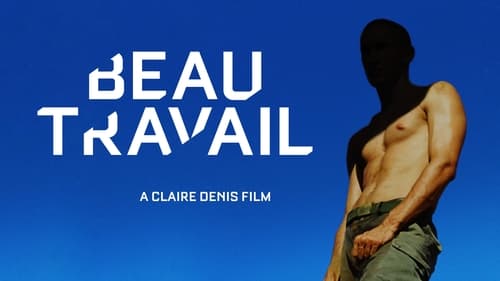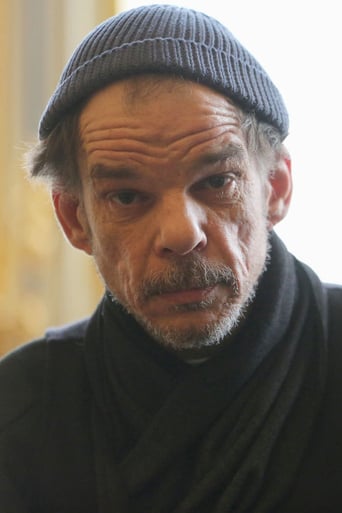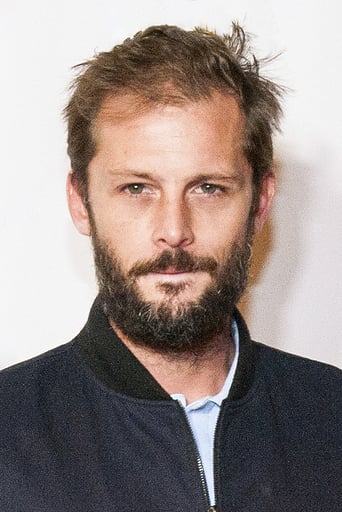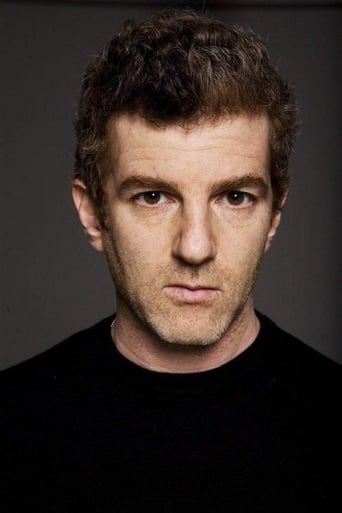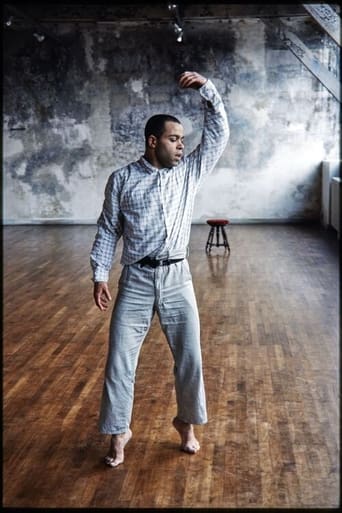Console
best movie i've ever seen.
Jonah Abbott
There's no way I can possibly love it entirely but I just think its ridiculously bad, but enjoyable at the same time.
Guillelmina
The film's masterful storytelling did its job. The message was clear. No need to overdo.
Geraldine
The story, direction, characters, and writing/dialogue is akin to taking a tranquilizer shot to the neck, but everything else was so well done.
Rick James
Never mind the pseudo-psycho plot that is really just undeveloped, the music that is mainly purloined or the character development that is really nil. The scenery and the physicality are worth it. Imagine a place whose most interesting geographical feature is an immense salt flat stretching to the jagged mountains on the horizon, and you'll get the idea. It's hard to believe the French Foreign Legion is this romantic, but the bodies are certainly worth the show.No one seems to have observed that "beau travail" can be play on words in French. It can mean "beautiful work" but it can also mean "empty" or "vain" work. Clever.
crispin14
It was the quotation from Benjamin Britten's Opera, "Billy Budd," that alerted me that Clair Dennis, must know a little bit about Opera.Billy Budd has a parallel story in which a handsome young sailor becomes the object of repressed homosexual rage by a character named Claggart. Billy has a severe stutter and has difficulty expressing himself, so when he is accused by Claggart of fomenting mutiny in frustration he strikes his accuser, a capital offence in the Queen's Navy.One of the characteristics of French Opera is the usual inclusion of ballet either as a scene or integrated into various parts of the opera. Think of the many dance scenes in Bizet's "Carmen," or the Bacchanale in Saint-Saëns "Samson et Dalila." Beau Travail uses the wonderful drill and exercise scenes as dance interludes, and of course there is Galoup's spectacular dance at the end of the film. A minor connection to Opera is that as an art form Opera excels at portraying the landscape inside the head of a character. As well Operas tend more often to be about "landscape" in a broad sense than they are about "narrative." This to some extent explains what some people may find static in this film. The Film is about the landscape of Algeria, the landscape of being a Legionaire, and the twisted landscape of Galoup's head,.
jotix100
Claire Denis' loose adaptation of Herman Melville's "Billy Budd", changes the story from taking place on the ocean to the African country of Djibouti, an impoverished nation with an outpost for training of the French Foreign Legion. Ms. Denis, who spent part of her life in Africa, sees the similarities of both stories and together with her co-writer Jean-Pol Fargeau, set to show us how the Melville novel impressed her.The group of legionnaires, we meet, are seen in different stages of their training. The men, who come from different walks of life, and countries, have nothing to do. The only entertainment for them is dancing with the local women in bars. Galoup, the second in command, of this outpost, is the narrator of the story. We realize he is telling the story from a civilian point of view since he is no longer a legionnaire.The man in charge, Galoup, is a strange person. He starts noticing how one of his men, the mysterious Sentain, does everything he is assigned to do, and more. When a helicopter crashes and Sentain risks his life in order to save a pilot, the troop commander, Bruno Forrester, suddenly sees in Sentain an courageous man. Forrester also observes how Galoup reacts to Sentain's sudden recognition. It's the commander who tells Galoup that backstabbing doesn't fit in the Foreign Legion, but it's already too late. Galoup, who is consumed in his dislike for Sentain, takes his subordinate into the desert as a punishment, which unknown to him will backfire on him.Claire Denis has amassed an interesting cast to give life to her vision. Agnes Godard, the cinematographer has shot the film showing us great vistas of Djibouti and the Golf of Aden. The film has the feeling of a ballet as one watches the men's shadows on the ground as they meditate after a grueling training session. Even though there is no clear indication Galoup is gay, but the way he watches Sentain leaves the viewer to think otherwise. The way Galoup touches Forrestier's bracelet is another indication of what is really troubling Galoup, in spite of the fact he is seeing one of the local women.Denis Lavant, an intense actor, plays Galoup with such control, yet it's clear to see what's eating him. Gregoire Colin, another actor with a great range, hardly utters a word throughout the film, yet, he comes across loud and clear in knowing what his superior is doing to him and being a better man for taking the abuse. Michel Subor is the troop's commander, a man into himself, but wise enough to detect all what's happening to the young people under his command.Clair Denis created an exquisite work of art. Ms Denis is a director that always delivers. The film solidifies her as one of the best women making movies in France, and all over the world, for that matter.
noralee
"Beau Travail" uniquely provides a woman's eye, director/co-writer Claire Denis, on the movie genre of taut men in groups, peace time military subset, with much less profanity or crudeness or misogyny than is typical.The camera loves looking at all these half naked, trim, fit young men, as they are seen over and over in all kinds of repetitive physical exertions, from the usual military obstacle courses to martial arts exercises that look like tai chi, to ones that seem like yoga and then banging against each other. (Surely these images must have influenced the later directors of "Tigerland" and "Jarhead.") It is amusing to see them busily ironing clothes in order to get the required creases in their uniforms. I haven't seen such a sensual scene of men ironing since Kevin Costner in "Bull Durham." The narrating sergeant "Galoup" is the usual strict bully, punishingly competitive in all these exercises. But I completely missed that the film was an adaptation of "Billy Budd" until I saw the closing credits that referenced the Britten opera on the soundtrack because the object of his attention, "Sentain," doesn't seem like a helpless victim.Unlike all movies about the duress of basic training and keeping enlisted men in line, the story is not from the point of view of this victim, but is told as a flashback by the sergeant with lots of references to what is lost and found (we hear "perdu" and "trouve" a lot though some is lost in translation as idioms are poorly translated in the subtitles, such as of sang froid).The sergeant seems out of "The Bridge Over the River Kwai" school, setting the under-employed Foreign Legionnaires posted on the coast of Djibouti to work repairing deserted roads and literally digging holes in the desert to work out his frustrations.The orphan just gets under his burr until he intentionally provokes him to the limit. It is certainly not clear what it is about him that annoys the sergeant. His lean beauty? His casual heroism? Even if there's some conflicted homosexual urges, and the sensuality of the local African environment and music are continually emphasized, amidst the homo-erotic subtext, the sergeant clearly has the hots for a young local woman.We don't get to learn much about the individual Legionnaires. The commandant, the crusty Michel Subor, is comfortable as a career soldier and, surprisingly in this genre, does support a sense of fair play and justice, as symbolized by his chess playing. He keeps insisting the men are no longer Russian or African but now are loyal to the Legion (as we keep hearing the anthem over and over). There is some grudging tolerance of the exoticism of diversity, even as the Muslims are teased during Ramadan.Even as viewed on video tape, the setting and contrasts in Africa are beautiful – from the desert to the sparkling bright ocean, but the narration is annoying, even as it ties together the memories of regret.The music is very evocative of the setting. The curving sensuality of night time African dance clubs and the women dancing is contrasted with the formality of the men's exercising. So I think in the conclusion the sergeant is finally trying to integrate all his experiences to the tune of "Spirit of the Night."


